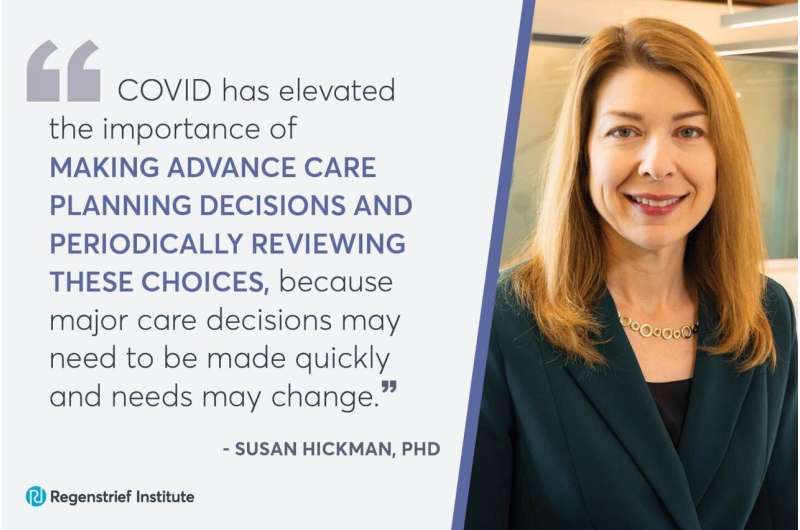
The high incidence of COVID-19 and resulting sudden changes in the health of many long-stay nursing home residents across the country have amplified the importance of advance care planning and the need for periodic review of the process, especially as widespread vaccination changes the calculus of the disease.
Two new studies from Indiana University and Regenstrief Institute focus on POLST, a medical order form widely used in nursing homes that documents what life-sustaining treatments a person prefers to receive or not receive, such as hospitalization or comfort-focused care. The studies, published online ahead of print in the Journal of the American Geriatrics Society (JAGS), found discrepancies between medical orders recorded in the POLST form and nursing home residents’ (or surrogate decision-makers, for those unable to make their own decisions) current treatment preferences and explore reasons for the lack of agreement.
“COVID has elevated the importance of making advance care planning decisions and periodically reviewing these choices, because, as we have seen very clearly over the past year, major care decisions may need to be made quickly and needs may change,” said research leader Susan Hickman, Ph.D., director of Indiana University Center for Aging Research at Regenstrief Institute and a professor at IU School of Nursing and IU School of Medicine. “Our finding that nursing home residents or their surrogate decision-makers often no longer agreed with their POLST form highlights the critical need to work with nursing homes, residents and their families to ensure these documents are reviewed regularly and updated to reflect current situations and preferences.”
The researchers found that less than half of all POLST forms of the 275 study participants matched current treatment preferences for resuscitation, medical interventions, and artificial nutrition. However, the POLST was more than five times as likely to agree with current treatment preferences when these orders reflected preferences for comfort-focused care. In interviews, participants reported the mismatch was due to factors including a lack of key information when they filled out the form and not revisiting POLST when the resident experienced a change in condition.
Source: Read Full Article



